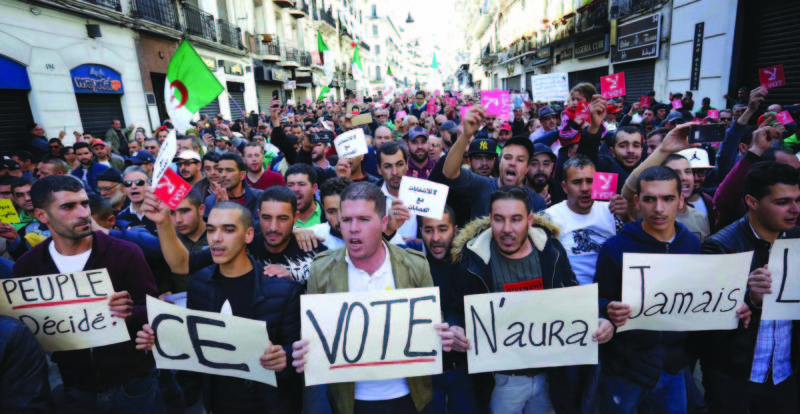by JWE President Helena Cobban
The mass reform movement that has swept Algeria for the past 42 weeks is united in opposing the presidential elections that the powers-that-be have scheduled for December 12. The power of this movement, known as the “Hirak”, means that election turnout is expected to be very low and the winner will likely enjoy little legitimacy or ability to resolve the country’s deeprooted challenges of governance.
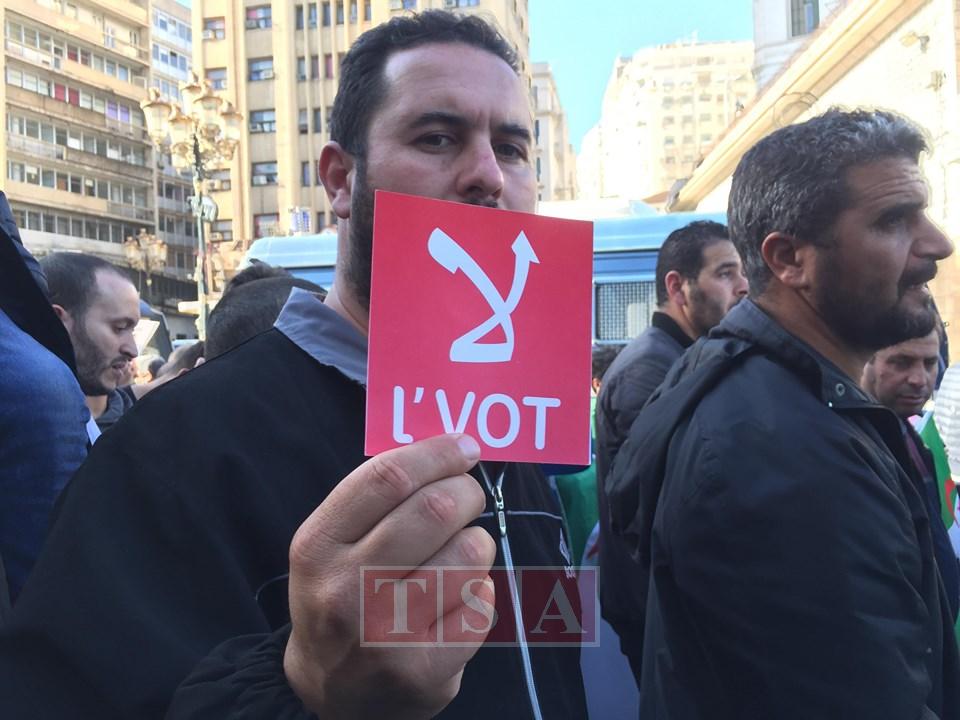
On Friday, December 6, throngs of people from all across the country once again took to the streets of its cities and towns to express their support for Hirak’s goals. The prime topic this week as on many previous weeks was to call for a boycott of next Thursday’s election.
The excellent website “Tous Sur Algerie” presented a strong roundup of the rallies and marches held all around the country on December 6, on this page on their website.
As usual during these large Friday rallies, the mood was one that mixed determination to continue opposing the plans of the country’s ageing, decrepit military leadership with joyful enthusiasm at being part of such a large, public movement and a strong, intentional commitment to keeping its actions quite nonviolent.
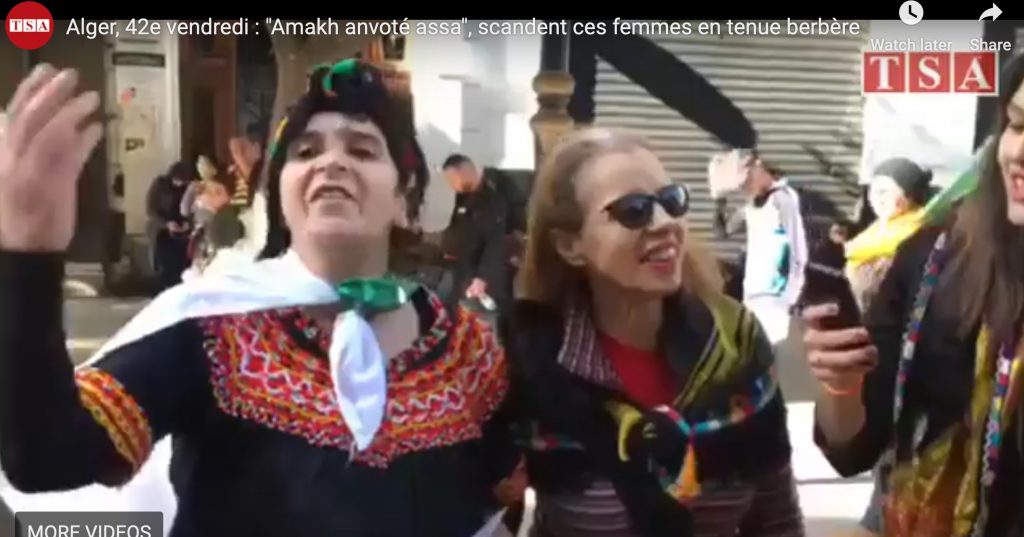
We know that materials in English on this powerful social movement are generally hard to find. So we were delighted that the Turkish news-site TRT World recently aired this 26-minute episode of its “Bigger Than Five” show, that focused on the background and impact of the Hirak. In the episode, Washington DC-based host Ghida Fakhry held very informative conversations with guests Mostefa Bouchachi, the veteran head of Algeria’s premier human-rights organization, Zoubida Assoul, head of the Union for Change and Progress Party (UCP), and William B. Quandt, a veteran U.S. analyst of Algeria’s history and politics.
Quandt was sitting with Fakhry in the studio. The other two spoke remotely from Algiers. The show also includes some very helpful English-subtitled archive footage and short pre-recorded interviews with a variety of Algerians.
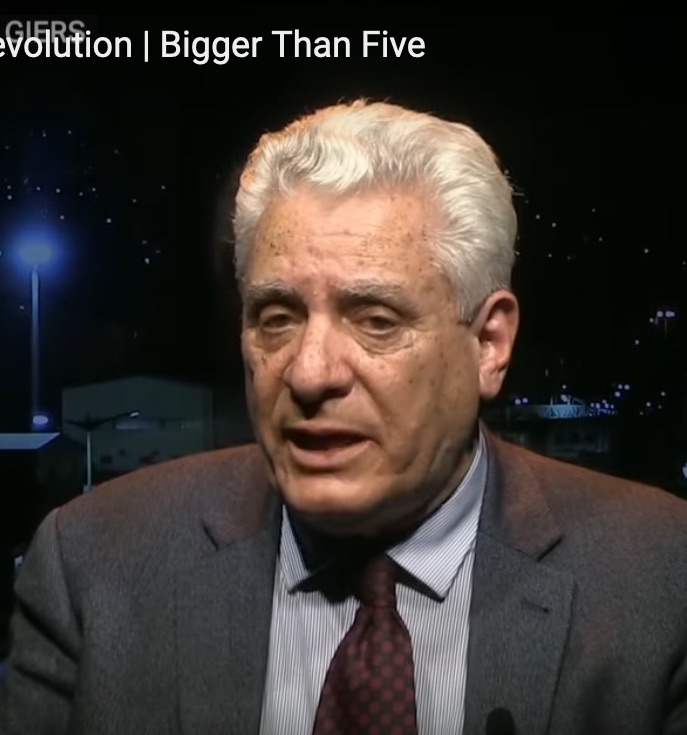
In the “live” parts of the show, Bouchachi was up first. He noted the truly nationwide nature of the Hirak and stressed that “People refuse to hold elections under the old system!” He warned that if the military-based existing “pouvoir” (powers-that-be) insists on proceeding with the December 12 election, “it will make matters worse.”
He referred to the decade-long and extremely destructive civil war that plagued Algeria throughout the 1990s, after a tentative and short-lived earlier move towards political liberalization– and said that this time around, “the Hirak and the army are both seeking to avoid violence.”
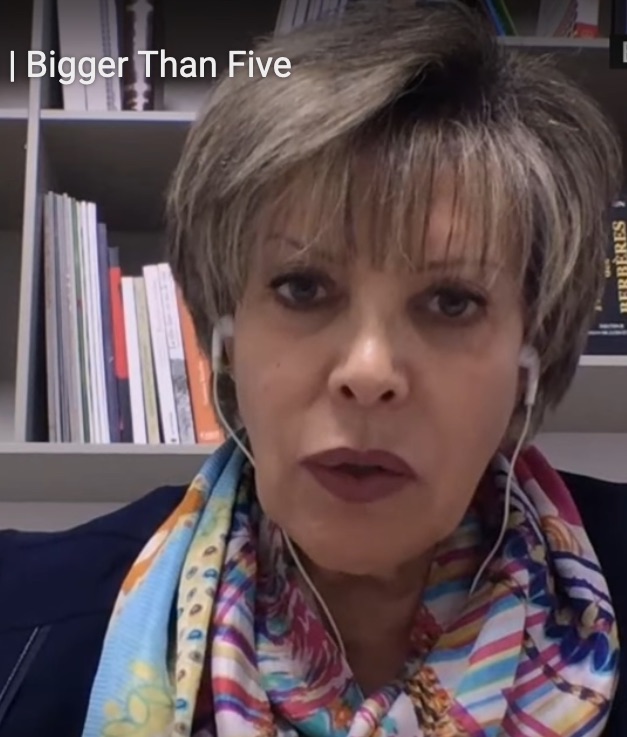
Next up was Assoul. She explained that, “We’re against elections because millions in the streets have been demanding real, deep change. Holding elections now will not bring this.
When it was Quandt’s turn to speak, he started by hailing the “extraordinary” nature, breadth, and discipline of the Hirak. “Most people hadn’t foreseen that Algeria could have produced such a broad, peaceful movement that has been sustained for so long,” he said.
As the archive footage in the show demonstrated, the Hirak started when Algeria’s very geriatric 20-year president Abdelaziz Bouteflika announced earlier this year that he planned to run for a fifth term in office. That was the event that propelled Algerians into the streets back in February and that has kept them demonstrating there once or twice a week ever since then.
Assoul told Fakhry,
All along, we we said that Bouteflika wasn’t the only problem– we need to reform the whole system! But all the people who were with Bouteflika for all those years are still there… All the old powerholders in the army and the state are still there.
We’ve said all along that the issue is not just to change the face in power!
Whichever one wins an ‘election’ on December 12 will not have any legitimacy to engage in dialogue with the citizens who, I believe, will remain mobilized even after December 12.
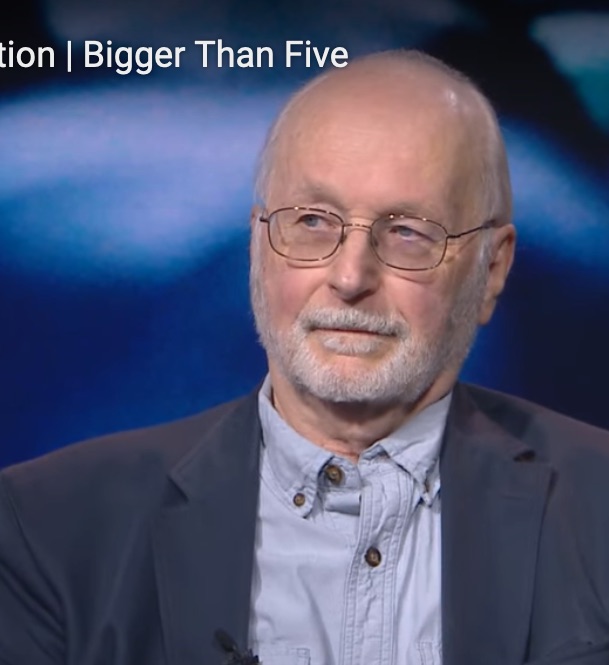
Fakhry asked Quandt why Western countries had been so silent on what has been happening in Algeria.
He noted that the European Parliament has started to look at the situation– “But the Algerians have made clear that they don’t want any outside interference– from France, from the EU, from the United States, and certainly not from the UAE or the Saudis.”
He was clear that he thought the absence of foreign governments’ involvement was a good thing.
But people around the world should be interested in this national uprising! It includes so many sectors, including the Kabyles, the secular, the religious… And it has been completely peaceful!
We should all be wishing the Algerian people well. They’ve done something remarkable. People should recognize that this is something new, something completely peaceful. It’s not Syria, not Libya, not Egypt. It’s a little bit more like Tunisia– and the reform movements in both countries are trying to reinforce each other.
Assoul ended by stressing that “Algerians have the capability and the intelligence to resolve this on our own, because the Algerian people know what they want! We want an end to corruption and opacity. We want to end the intervention of the army in the political system. We want the rule of law and a system in which citizens can pursue their lives in freedom.”
Just World Ed has compiled a rich library of materials in English on the history and politics of Algeria. You can access it here. If you would like to help ensure that we can continue in our mission, please consider giving us either a one-time or a recurring donation. Information on how to do so is here:

